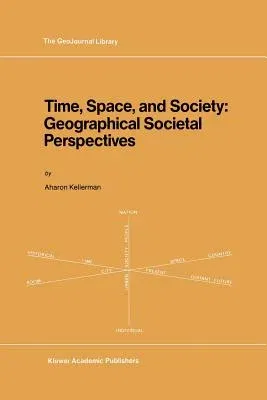A Kellerman
(Author)Time, Space, and Society: Geographical Societal Perspectives (Softcover Reprint of the Original 1st 1989)Paperback - Softcover Reprint of the Original 1st 1989, 20 September 2011

Qty
1
Turbo
Ships in 2 - 3 days
In Stock
Free Delivery
Cash on Delivery
15 Days
Free Returns
Secure Checkout
Part of Series
Geojournal Library
Print Length
128 pages
Language
English
Publisher
Springer
Date Published
20 Sep 2011
ISBN-10
9401075263
ISBN-13
9789401075268
Description
Product Details
Author:
Book Edition:
Softcover Reprint of the Original 1st 1989
Book Format:
Paperback
Country of Origin:
NL
Date Published:
20 September 2011
Dimensions:
23.39 x
15.6 x
0.81 cm
ISBN-10:
9401075263
ISBN-13:
9789401075268
Language:
English
Location:
Dordrecht
Pages:
128
Publisher:
Series:
Weight:
217.72 gm

